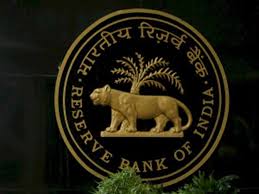 The Central Board of Direct Taxes (CBDT) has laid down operational guidelines for e-assessments of select non-corporate taxpayers to be undertaken as a pilot in five metros.
The Central Board of Direct Taxes (CBDT) has laid down operational guidelines for e-assessments of select non-corporate taxpayers to be undertaken as a pilot in five metros.
It has now specified the format and standards for ensuring secured transmission of electronic communication between the taxpayer and the Income-Tax Department.
The move comes three months after the CBDT announced its intent use ‘electronic mail’-based communication for assessment.
It had then announced that a pilot project would be launched in five “non-corporate charges” at Delhi, Mumbai, Bengaluru, Ahmedabad and Chennai.
Non-corporate charges
Non-corporate charges are those dealing with assessments of individuals, Hindu Undivided Families and partnerships.
Initially, 100 cases would be identified for e-hearing in each of these five regions and a major part of the assessment would be done electronically, the CBDT had then decided. Only cases taken up for scrutiny were to be covered under the pilot.
Commenting on the move, Aseem Chawla, Partner, MPC Legal, a law firm, said: “If this IT-enabled exercise does succeed, it would usher in a new era in taxpayers’ interaction with tax department in making the process, simpler, economical and hassle-free.”
Amit Maheshwari, Partner, Ashok Maheshwary & Associates, a CA firm, said, “The guidelines allay various concerns of the taxpayers on the scheme and once it’s successful would enable quick percolation across the entire tax department and make it a standard practice. One good move is that the communication status would be displayed to the taxpayer in their online account.
“This would prevent missed dates, miscommunications and effective follow-ups.”
Vikas Vasal, Partner –Tax, KPMG in India, said the Centre has clarified the procedural aspects of usage of electronic communication regarding paperless assessment proceedings.
Saving time
“Gradually, the aim is to move most of the communication to the electronic format.
“Once done, it would save time and effort both for the tax payers and the tax department.
“Also, it would bring in more transparency and consistency in tax positions” .
A number of tax simplification measures have been announced by the government recently and more are expected in the forthcoming Union Budget, he added.
“If this IT-enabled exercise does succeed, it would usher in a new era in taxpayers’ interaction with the department in making the process, simpler, economical and hassle free”.
Source: http://www.thehindubusinessline.com/todays-paper/tp-news/cbdt-lays-down-norms-for-eassessments/article8200085.ece
 The Income Tax department has issued refunds worth Rs 1 lakh crore till January in the current fiscal, the Finance Ministry said today.
The Income Tax department has issued refunds worth Rs 1 lakh crore till January in the current fiscal, the Finance Ministry said today.




